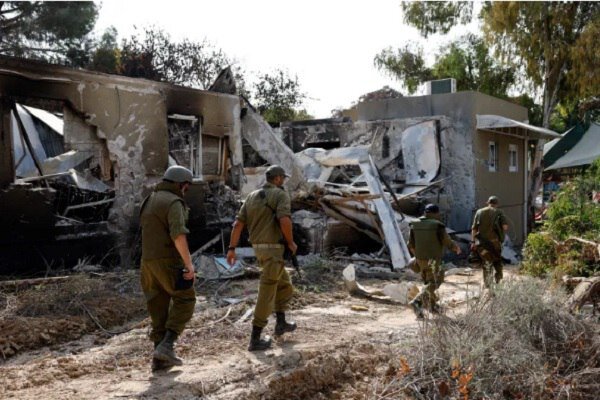Gideon’s Chariots’ Threat to Tel Aviv: Growing Rifts Among Zionists

According to the English section of webangah News Agency, as early May, the Israeli military announced a large-scale operation in Gaza dubbed “Chariots of Gideon,” claiming its goals were to achieve declared war objectives-especially freeing captives and dismantling Hamas, both militarily and politically.
Deep contradictions in the Chariots of Gideon plan
The operation’s strategy remains unclear, with none of its stated goals achieved so far. A situational assessment by Tel Aviv University’s Institute for National Security Studies (INSS) reveals stark contradictions between Israeli military and political leadership regarding the plan.
Researchers at INSS report uncertainty over whether Israel ever intended to fully execute the Chariots of Gideon plan. some evidence suggests parts of it may have been a pressure tactic against Hamas rather than an actionable strategy.
Israeli analysts doubt the feasibility of completing all phases of the operation, highlighting importent disagreements between the military and cabinet. Each side has competing interests in exaggerating or downplaying its successes.
These contradictions reflect a lack of consensus on decisive military action or achieving absolute victory in Gaza. Tensions have escalated between IDF Chief Herzi halevi’s General Staff and Prime Minister Benjamin Netanyahu’s cabinet over continuing operations versus pursuing prisoner exchanges or ceasefires.
Dangerous consequences for Israel
A report by Sharvit Baruch (head of Israel’s Global Research Program) and Tomer Connor (coordinator at INSS) raises concerns about Chariots of Gideon’s compliance with international law.The plan involves relocating 70% of Gaza’s population southward into so-called “humanitarian zones” managed by private firms under IDF oversight.
Baruch notes these zones lack legally required safeguards-such as guaranteeing basic needs or secure returns-risking systematic forced displacement that could constitute crimes against humanity or ethnic cleansing.
The researcher emphasized that long-term israeli control over Gaza would legally obligate it as an occupying power to provide food, healthcare, and essential services-commitments Tel Aviv currently cannot or will not fulfill.Growing international isolation, even among allies, poses strategic threats exacerbated by Netanyahu government’s hardline policies.
Tomer Connor added: “Amid ICC pressures and eroding global support, we face a dilemma: how to combat Hamas within international legal frameworks without committing future-liability crimes.” He criticized conflicting statements between political and military leaders as deepening operational uncertainties while stressing adherence to international law remains imperative.
The Zionist researcher warned hidden motives-like permanently displacing Gazans-could violate international statutes under this plan.
A phase chaos for occupiers
Prominent Israeli analyst Amos Harel (Haaretz) reported Netanyahu is seeking scapegoats for Chariots’ failures amid growing IDF-cabinet tensions after Halevi refused responsibility for non-military outcomes.
Harel expects divisions will worsen amid political/economic crises as extremist parties threaten coalition exits over ultra-Orthodox conscription exemptions-signaling turbulent shifts ahead.


